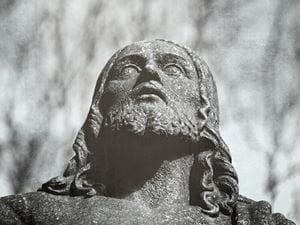
Easter is upon us, and with that comes memories from our childhood and traditions many of us still try to incorporate into our families. Though our memories of Easter as a child are of fun-filled days decorating and collecting eggs, we have, in adulthood, developed a greater appreciation for the real meaning of the holiday.
Easter is a celebration of the gift God gave us through the death, burial, and resurrection of his Son, Jesus Christ. We should think of God’s ultimate sacrifice as a father by sending His one and only son to take on the atonement for our sins. We should think of all the pain and suffering He went through to provide salvation for us. We should think about love and grace. We should think about redemption and freedom and, most importantly, we should think of victory.
The true story of Easter.
To begin with, Jesus died beyond all disputes on the testimony of several witnesses. The chief priests even placed a guard over the tomb to ensure His followers didn’t remove His body from the grave.
But on Easter morning, when several of Jesus’ followers came to the tomb, the stone had been rolled back, and there was no body. There had been a great earthquake; an angel had come to roll back the stone. The guards had fled in fear, and when they reported to the chief priests what had happened, they were given a large sum of money and told to say that the disciples had stolen the body.
Then Jesus showed Himself to His disciples, alive, risen from the dead. He invited them to touch Him, examine the wounds in His hands and feet, and He ate together with them to prove He wasn’t a ghost but had a body that wasn’t dead, described in Matthew 27-28.
Later, a physician called Luke questioned all the witnesses, brothers, and sisters. As far as he was concerned, Jesus had presented Himself alive from the dead by many unmistakable proofs over 40 days, after which the disciples saw Him ascend into heaven from the Mount of Olives, as seen in Luke 23-24 and Acts 1:1-11.
What is the real message of Easter?
Many Christians believe the central message of Easter is that Jesus died for us so that we could be forgiven for all our sins. However, this forgiveness was also available in the Old Covenant through sacrificing an animal without blemish in the place of the sinner. No, Easter means something much more than just forgiveness. It symbolizes that we, too, can come to the same “resurrection life” that Jesus lived. 1 Corinthians 15 and 2 Corinthians 4:7-12 both remind us that this is the new life that comes from putting your old life to death, which is the sin that lives in our human nature.
The root of all sin is that human beings choose to do their own will instead of obeying God’s perfect will, with the inevitable consequence of death. Jesus overcame death because He always denied His own will to do His Father’s will in a body like ours with the same desires and passions to live for our pleasure and gain. With the power of God’s Spirit, He suffered these passions and desires to death and lived entirely for God’s pleasure, without once sinning, despite being tempted in every way like us. This was the way of the cross that He made for us to follow.
To believe fully in Jesus Christ and His resurrection is to believe in the work in His body here on earth when He destroyed everything that conflicted with God’s will and His Word in His mortal body. He was obedient unto death, every day of His life, and completed the work on Calvary when He cried, “It is finished!” At that moment, all of the indwelling sin in His human nature had been defeated. The way back to the Father was opened up for humanity.
Easter message of hope.
Easter’s message of hope is no fairy tale or religious device. It demonstrates the love and power of God and His Son for people who are suffering because of sin. God yearns to give each of us true happiness and peace, but the sin we have inherited in our human nature robs us of this.
Jesus did not die merely for our salvation, although he died for that, as described in Isaiah 53:10–12. He also died to free us from sin and its ramifications. Jesus’ resurrection gave us the ability to be released from sin’s power over our life. The resurrection gives us liberating hope. In Romans 6:4-7, Paul put it this way: we were buried with Jesus through baptism into death so that, just as Christ was raised from the dead, we can also live a new life. If we were united with him in a death like his, we would also be connected with him in a resurrection like His.
Perhaps you are feeling bound by the sin in your life. Jesus has hope for you. Jesus’ resurrection can reign in your life and release you from the bondage of sin. Jesus can give you new life. Jesus wants you to be free. Jesus wants to offer everyone in our world the liberty of resurrected life.
Do you have a longing to be set free from the slavery of sin and come to the peace God wants to give you? Jesus has made it possible through the cross, overcoming the power of death by conquering the sin that caused it. Become a true disciple, and follow Him in this way by bringing the sin in your own life into death in obedience to God’s Word! Then you, too, will experience a life of resurrection.
Jesus’ resurrection and ascension offer us the very power of God in our lives, detailed in John 14–16. It gives us a chance to have the transformational power of God as the Holy Spirit working in us. It provides us with the opportunity to be God’s representatives here and now. We can do anything God calls us to do with resurrected life on our side, in us and working through us. The meaning of Easter is resurrection is real and tangible hope right now.

